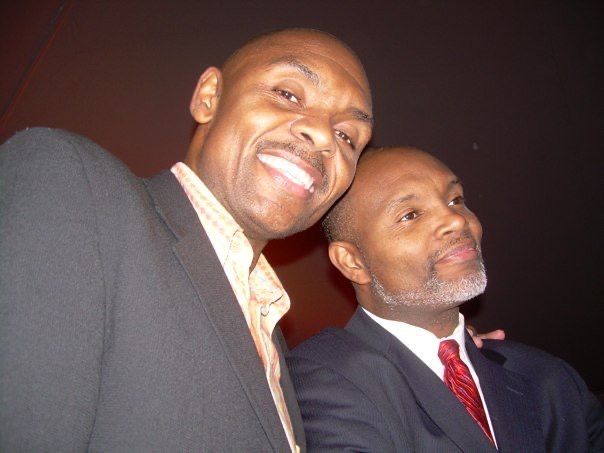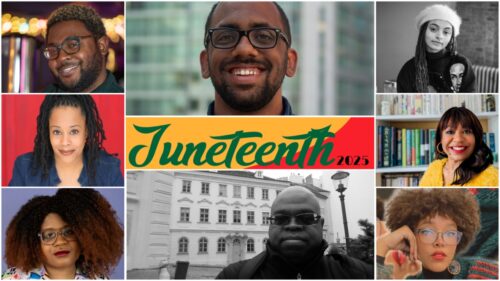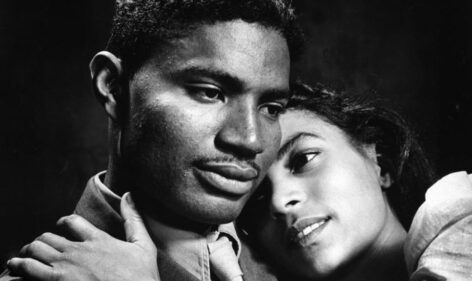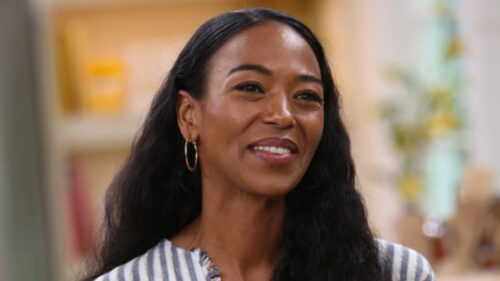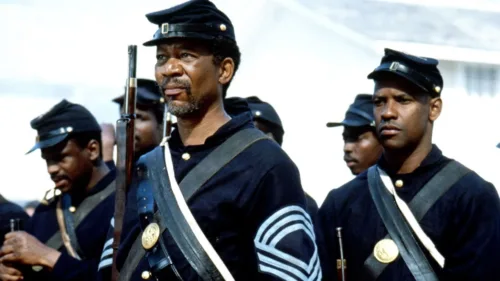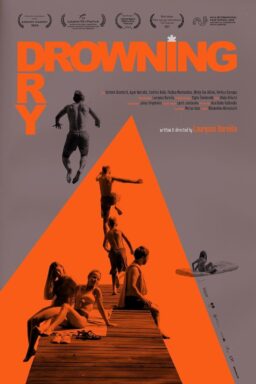“The Journey of a Black Film Critic: Breaking Barriers, Inspiring Change” is a personal narrative that delves into my experiences and challenges as a Black film critic. It acknowledges the existing barriers within the industry but primarily focuses on individual responsibility and proposes strategies to elevate the profile of Black critics. This article aims to inspire and empower aspiring Black critics by sharing insights on breaking into the industry and offering suggestions for advancement.
Despite an increase in the number of African-American film critics and notable individuals working at major publications, the landscape for Black film critics has not significantly improved over my 30-year career.
According to Zippia, white writers still dominate the industry, comprising 67.3% of the field in 2021. Black critics remain underrepresented, comprising only 6.2% of the profession, a lower number than even in 2010, while women of color face particular challenges in authoring reviews on platforms like Rotten Tomatoes. These disparities underscore the industry’s imbalance. Nevertheless, my unwavering desire to become a film critic propelled me forward.
Black film critics encounter various barriers, including limited employment opportunities with organizations that offer compensation and access to festivals and events. Access to publications, publicists, studios, and festivals is also often restricted, as these entities control attendance at screenings, interviews, press junkets, premieres, and set visits. Joining industry organizations typically requires a significant following, numerous reviews, accreditation, or sponsorship, further hindering aspiring critics. Moreover, bias, often disguised as a lack of training or necessary skills, perpetuates the persistent disparities, failing to acknowledge the issue of exclusion.
In my journey, I have encountered many of these barriers. However, before delving into how I confronted and overcame them, it is important for you to have a sense of who I am. Growing up in a predominantly Black community on the Southside of Chicago, I witnessed my mother’s determination and resourcefulness as she worked multiple jobs to support her eight children. Despite challenges, she ensured that all of us had the opportunity to attend and graduate from college. While we enjoyed television shows featuring predominantly white characters, we eagerly consumed content featuring Black characters as well. My mother emphasized the importance of play and creativity over excessive media consumption, igniting our imaginations through plays, skits, poetry, and invented games.

One of our notable skits developed by my older brother Rhinold, the “Muntly-Rinkly Report,” was inspired by the nightly news program “Huntley-Brinkley Report” but infused with a Black perspective. This skit sparked my passion for commentary, allowing me to address world events from my unique standpoint and shed light on unreported news stories or perspectives lacking in mainstream media.
While at Princeton University, where I joined Rhinold, I changed my major to sociology, which demanded a critical analysis of the world around us. I then pursued an MBA in marketing and economics at The University of Chicago Booth School of Business and found success in the advertising industry at Leo Burnett. However, my burning desire to discuss cinema and its messages compelled me to journey to amplify my voice as a film critic. This journey has been marked by challenges, setbacks, and victories.
Securing my first film critic job seemed nearly impossible. I faced rejections from prestigious publications like the Chicago Sun-Times, but I refused to give up. Undeterred, I approached Hermene Hartman, the publisher of N’DIGO, expressing my interest in writing movie reviews for her publication. Despite initial hesitance due to my lack of experience and the presence of an existing reviewer, I emphasized how my educational background provided a solid foundation for discussing the world. While Hartman didn’t hire me directly, she referred me to her editor, Kai El Zabar, who eventually gave me an assignment. I had broken through the barrier!
Subsequently, I secured a position as a resident critic with AOL Black Voices, leveraging my credentials from N’DIGO. However, my applications to film critic organizations continued to be rejected, with one letter stating that I wasn’t critical enough. Obtaining invites to screenings also became challenging as I found myself on the list of critics but not among the preferred ones, often confined to writing about “the Black Movie.” While appreciative of the opportunity and acknowledging my Black audience, this limitation prevented me from exploring a broader range of films and their nuances, highlighting the misconception that Black viewers only consume Black content—an idea that marketers struggle to grasp fully.
In early 2003, a significant setback occurred when my mother was diagnosed with cancer. I resigned from my additional jobs as a film critic to prioritize spending time with her. Unfortunately, she passed away that November. After a period of grieving, I aimed to reenter the field, but it took four years to secure another job in the industry. N’DIGO had already filled my position, and AOL Black Voices underwent restructuring. Determined to make a comeback, I decided to invest in myself. I proposed to Jeff Friday, the co-founder of the American Black Film Festival, that I interview celebrities on the red carpet. Initially, my proposal involved payment and shared ownership of footage, but we eventually settled on a barter agreement. I attended the festival at my own expense, gained all-access, interviewed filmmakers and celebrities, and attended screenings. ABFF could utilize the footage while I leveraged the interviews and screenings to sell articles to various outlets. I continued this arrangement for ten years, and although I incurred more expenses than revenue, I had successfully reestablished myself as a film critic.
Additionally, I created a one-minute movie review and a two-minute movie update segment for radio. Abe Thompson, a South Bend, Indiana station owner, agreed to air my programming. While not highly profitable, this began my self-syndication efforts, which later expanded to include Chicago, Atlanta, and Columbus, Georgia radio stations. Unfortunately, I couldn’t sustain the program after a national deal with a major advertiser fell through.
A guest appearance on 91.1 FM Chicago/Vocalo.org opened up new opportunities for me, eventually leading to my role as their resident critic, a position I still hold today. Despite the recent challenges posed by COVID-19, it also allowed me to innovate. I organized a weekly Zoom discussion with film critics who would have otherwise been traveling. Noted critic Shawn Edwards joined as my first co-host, attracting others like Kathia Woods and Kay-B. Together, we successfully produced 55 consecutive weeks of The Reel Critic Roundtable. Additionally, I began contributing weekly reviews to The Garfield/Lawndale Voice in Chicago, expanding my reach and impact within the local community.
These experiences have imparted valuable lessons that can benefit other aspiring critics. I have learned that building and nurturing relationships is essential to overcoming the barrier to entry. While not every person you meet will offer an opportunity, some individuals are willing to help. I am sincerely grateful for the support from Hartman, Friday, Thompson, Edwards, Woods, Kay-B, and others.
When it comes to barriers to access, creativity is key. I would attend midnight showings of new releases on Thursdays just to write my reviews for Friday. I also volunteered as a critic’s assistant to gain access to movies and industry professionals. To be transparent, I am still striving to achieve that next entry level, such as an invitation to the Academy Awards. It’s a journey that requires persistence.
Joining professional organizations can be an effective strategy for breaking through barriers and gaining access, as it expands your network and opens doors. Becoming a member of the African American Film Critics Association (AAFCA) brought new opportunities and connections with studios and representatives who had previously overlooked me. Joining the Critics Choice Association (CCA) further increased my industry interactions. However, joining these organizations requires leveraging your network and finding sponsors or recommenders. Once you become a member, active participation is crucial to making the most of your membership. Volunteering for a joint AAFCA/Variety venture, aimed at getting underrepresented youth interested in the industry, led me to write for Variety (thanks, David Cohen).
Finally, bias remains a challenging barrier to overcome. While there is no definitive solution, it is important to strive to be the best critic you can be and stay prepared for opportunities when they arise. As a Black male critic, I am conscious of my own privilege and fully dedicated to advocating for the inclusion of other marginalized individuals, particularly Black women.
Looking ahead, I am actively seeking opportunities to distribute my one and two-minute vignettes, reviving The Reel Critic Roundtable, working to syndicate my written reviews, and investigating an expanded role with Vocalo at the esteemed “mother station” WBEZ. Through these endeavors, I am committed to making a lasting impact in the industry and continuing to grow as a film critic.
Undoubtedly, there are significant challenges in this industry. However, I firmly believe in the power of personal growth and improvement. This is where I choose to direct my focus. Despite the obstacles, I derive immense joy from working in this field and am grateful for the valuable connections and experiences I have gained. While technology often takes center stage, my journey has taught me that relationships are the true driving force behind success. My intention is to inspire you to explore what you can do individually as you work in this industry. I can’t stress enough how our presence and contributions have the potential to bring about meaningful change. So, let’s embrace the spirit of “lights, camera, action” and go critique!
